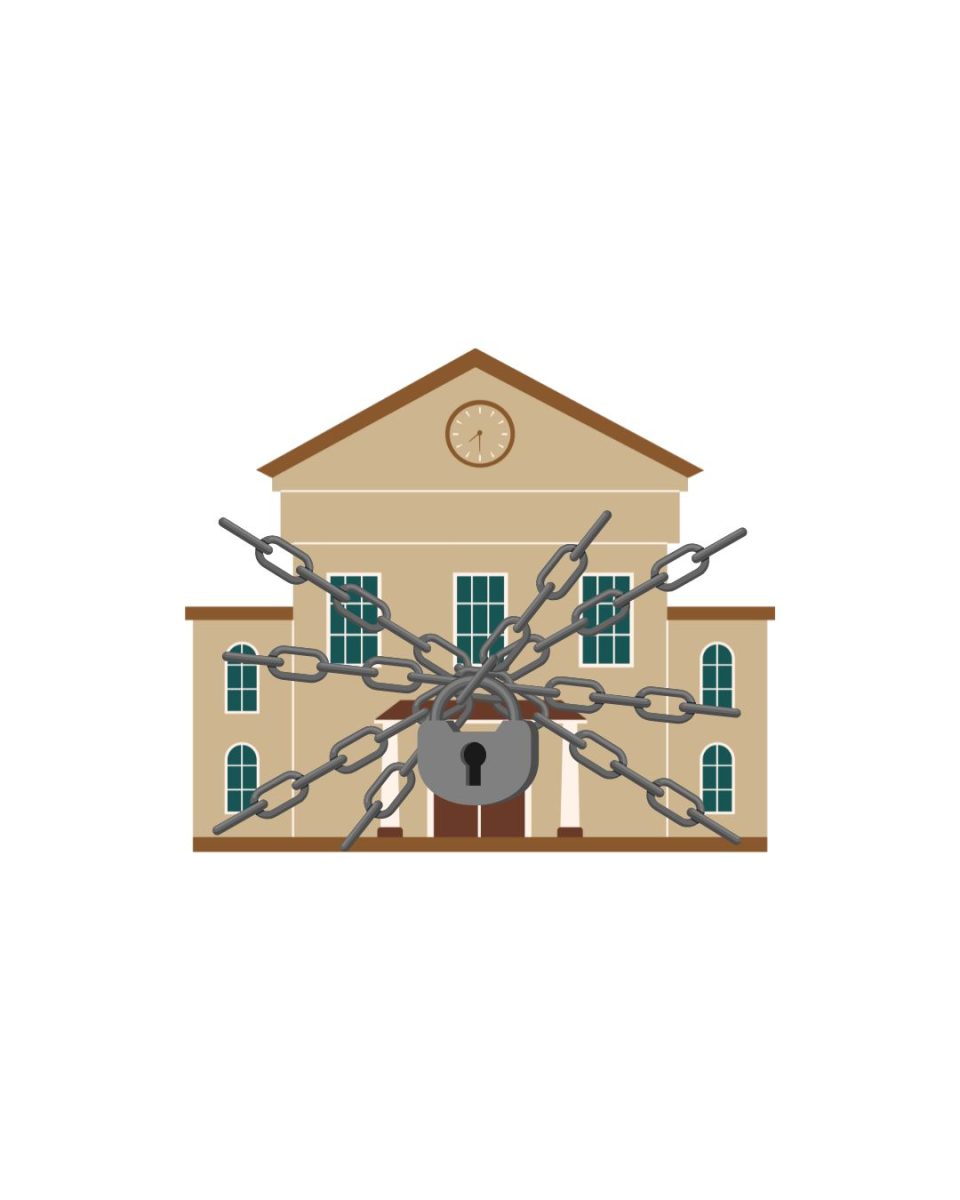
"If you take the skill of identifying these hierarchies into your daily life, you will find that your problems are much easier to tackle." (Graphics Editor / Alexander Cruz)
All our problems have a source. I, for example, am constantly running slightly late. I could blame this on all sorts of things. The weather, the proximity of my classes to each other, traffic, the list goes on.
You know what I didn’t list? Myself. Nobody wants to blame their problems on themselves. My habit of running fashionably late is mine, however. If I want to solve that problem, then I should start by identifying the source: me.
Sure, sometimes it’s rainy and I need to run back to my apartment and grab an umbrella. Sometimes I leave the house just to realize the New Jersey traffic is going to set back my arrival by 10 minutes. Sometimes I’m literally running to class or work or rehearsal or a club meeting because my schedule is just a bit too tight.
Who made the choice not to look at the forecast? Who didn’t check Google Maps before embarking on a journey? Most of all, who made my schedule?
Hopefully, I’ve illustrated that my lack of timeliness falls on me. Sometimes, however, I am not the source of my problems. Who is?
On a college campus, you will run into many roadblocks. Some of them will be self-imposed, and some of them will be caused by a variety of factors completely outside of yourself.
Here at Rowan, the challenges that we face as a student body, as well as faculty and staff, include a whole host of things. Parking, food quality, cleanliness, safety, changes in administration, and changes to the campus itself — the list goes on and on. As editor of the opinion section, I can affirm that the list goes on. And every item on that list has a cause.
Let’s say you dislike the food on campus. You are entitled to that opinion, but if you think that, you should probably know who to blame.
Your standard Rowan student would say that “Rowan” is the cause of campus food being bad. In the loosest sense of the word “cause,” you would be right. The university has dining facilities and the name Rowan is attached to them, but if you want better food, you aren’t going to march up to “Rowan” and fix it.
“Rowan” isn’t an office, person, or even job. It isn’t beholden to any policy, nor can it field your complaints. Really, when it comes to your problems, “Rowan” is a metaphorical concept. But, enough about philosophy.
Part of entering adulthood is learning about the bureaucracy that governs your daily life, and as a college student, that would be the administration of Rowan University. One of my favorite resources to lean on is Rowan’s web page titled “Leadership.” It lists all the offices and divisions that keep the university running, and it’s also where I start the process of assigning blame.
I prefer to approach blame from the top down, the reason being that if your attempts to resolve your problem go nowhere, you will know exactly how to escalate. This is opposed to if you start at the bottom, where you might not even be blaming someone with the power to change things.
Consider campus dining again. If I don’t like the food at the Student Center, I could blame that on the people who are working the line, but they don’t set the menu or run their own training, let alone order ingredients or control item availability. They also don’t create the Student Center’s schedule, nor did they decide on its location. But someone did make those choices, and it’s up to us to find out.
From the top down, based on the Leadership web page, the chain of command for campus dining starts with the Division of Student Affairs, the Office of Student Life, and then Gourmet Dining. From there, we meet our key players.
The Gourmet Dining team includes a host of managers and directors who oversee all aspects of dining. If you’re having trouble with a lack of allergen-friendly options, then you could start your blame with the campus dietician.
Now, in this entire article, I’ve been using the word blame, but really, blame is a gateway to collaboration. Getting to the root of your problems, naming them, and confronting them is the start of working towards resolution.
It’s easy to call Rowan awful, terrible, and bad for not having the exact food offerings you want. It’s much harder to first identify why you don’t like the food, discover who creates the menus, and contact them formally and directly. It forces you to accept that behind the all-encompassing concept of Rowan are hierarchies of people pulling the strings.
If you take the skill of identifying these hierarchies into your daily life, you will find that your problems are much easier to tackle. The initial fear of reaching out to those whom you’ve assigned blame is natural, but after you do it, you will find that most people are reasonable and accommodating.
Even if your problem doesn’t have an immediate solution, you’ll find it much easier to accept this reality with grace as opposed to anger once you can assign the blame. Because blame isn’t always negative, it’s a fact of life. Departments, divisions, offices, and, at their core, people are responsible for all aspects of our lives — both good and bad.
So go forth and blame — you might be surprised at the impact you’ll have.
For comments/questions about this story, DM us on Instagram @thewhitatrowan or email [email protected]